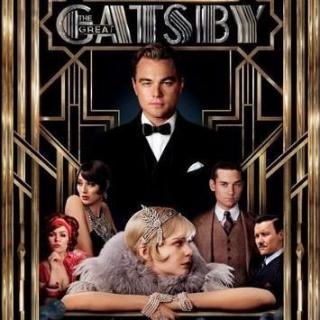
介绍:
I walked out the back way—just as Gatsby had when he had made his nervous circuit of the house half an hour before—and ran for a huge black knotted tree, whose massed leaves made a fabric against the rain. Once more it was pouring, and my irregular lawn, well-shaved by Gatsby’s gardener, abounded in small, muddy swamps and prehistoric marshes. There was nothing to look at from under the tree except Gatsby’s enormous house, so I stared at it, like Kant at his church steeple, for half an hour. A brewer had built it early in the “period.” craze, a decade before, and there was a story that he’d agreed to pay five years’ taxes on all the neighboring cottages if the owners would have their roofs thatched with straw. Perhaps their refusal took the heart out of his plan to Found a Family—he went into an immediate decline. His children sold his house with the black wreath still on the door. Americans, while occasionally willing to be serfs, have always been obstinate about being peasantry.
After half an hour, the sun shone again, and the grocer’s automobile rounded Gatsby’s drive with the raw material for his servants’ dinner—I felt sure he wouldn’t eat a spoonful. A maid began opening the upper windows of his house, appeared momentarily in each, and, leaning from a large central bay, spat meditatively into the garden. It was time I went back. While the rain continued it had seemed like the murmur of their voices, rising and swelling a little now and then with gusts of emotion. But in the new silence I felt that silence had fallen within the house too.
I went in—after making every possible noise in the kitchen, short of pushing over the stove—but I don’t believe they heard a sound. They were sitting at either end of the couch, looking at each other as if some question had been asked, or was in the air, and every vestige of embarrassment was gone. Daisy’s face was smeared with tears, and when I came in she jumped up and began wiping at it with her handkerchief before a mirror. But there was a change in Gatsby that was simply confounding. He literally glowed; without a word or a gesture of exultation a new well-being radiated from him and filled the little room.
“Oh, hello, old sport,” he said, as if he hadn’t seen me for years. I thought for a moment he was going to shake hands.
“It’s stopped raining.”
“Has it?” When he realized what I was talking about, that there were twinkle-bells of sunshine in the room, he smiled like a weather man, like an ecstatic patron of recurrent light, and repeated the news to Daisy. “What do you think of that? It’s stopped raining.”
“I’m glad, Jay.” Her throat, full of aching, grieving beauty, told only of her unexpected joy.
“I want you and Daisy to come over to my house,” he said, “I’d like to show her around.”
“You’re sure you want me to come?”
“Absolutely, old sport.”
Daisy went up-stairs to wash her face—too late I thought with humiliation of my towels—while Gatsby and I waited on the lawn.
“My house looks well, doesn’t it?” he demanded. “See how the whole front of it catches the light.”
I agreed that it was splendid.
“Yes.” His eyes went over it, every arched door and square tower. “It took me just three years to earn the money that bought it.”
“I thought you inherited your money.”
“I did, old sport,” he said automatically, “but I lost most of it in the big panic—the panic of the war.”
I think he hardly knew what he was saying, for when I asked him what business he was in he answered, “That’s my affair,” before he realized that it wasn’t the appropriate reply.
“Oh, I’ve been in several things,” he corrected himself. “I was in the drug business and then I was in the oil business. But I’m not in either one now.” He looked at me with more attention. “Do you mean you’ve been thinking over what I proposed the other night?”
Before I could answer, Daisy came out of the house and two rows of brass buttons on her dress gleamed in the sunlight.
大家还在听

